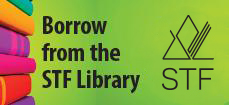Course Configurations
| (a) | Identify various documents such as receipts, bank statements, job applications, resumes and passports which contain sensitive information that others could use fraudulently. |
| (b) | Recognize when personal information (e.g., social insurance number, account numbers, passwords, passport information and personal address/location) should remain confidential. |
| (c) | Identify how documents that contain sensitive information may be stored and protected using various tools and techniques such as a safety deposit box, a fire proof safe, a secured electronic folder and shredding. |
| (d) | Assess the need for keeping debit and credit card information such as the card number, card verification value/card verification code (CVV/CVC), and personal identification number secure. |
| (e) | Discuss the level of security associated with common payment methods such as cash, cheque, electronic transfer, credit card, bank draft, manager’s trust cheque and prepaid credit card. |









This Canadian resource supports the Financial Literacy curriculum and provides information at a suitable introductory level. The resource is organized under six headings for a total of 15 modules.
Topics covered:
- Goals, Values and Decision-making
- Getting and Earning Money
- Spending Money and Taking Control
- Borrowing Money and Using Credit
- Saving and Investing Money
- Protecting Assets and Planning for the Future.
The resource includes:
- Student Guide, English or French, free online PDF version or hard copies can be ordered at a minimal fee
- Teacher's Guide, English or French, free online version


The Indigenous Edition of Money and Youth builds on the original resource from the Canadian Foundation for Economic Education, CFEE. Damon Johnston, President of the Aboriginal Council of Winnipeg, provided guidance rooted in traditional teachings and the Seven Sacred Laws. Vanessa Everett, CEO of Economic Development with the Keewatin Tribal Council, adapted the original version by Gary Rabbior of CFEE. Input from respected individuals across Turtle Island also helped shape this edition.
Topics covered:
- Goals, Values and Decision-making
- Getting and Earning Money
- Spending Money and Taking Control
- Borrowing Money and Using Credit
- Saving and Investing Money
- Protecting Assets and Planning for the Future.
The resource includes:
- Student Guide, English, free online PDF version or hard copies can be ordered at a minimal fee
- Teacher's Guide, English, free online version

